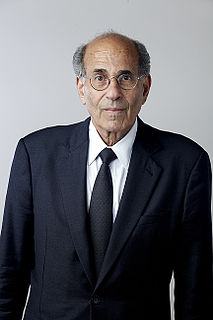A Quote by Kristoffer Rygg
There's no specific aesthetic other than a sense of the beautiful itself, I suppose.
Related Quotes
The beautiful is and remains beautiful though it arouse no emotion whatever, and though there be no one to look at it. In other words, although the beautiful exists for the gratification of an observer, it is independent of him. In this sense music, too, has no aim (object), and the mere fact that this particular art is so closely bound up with our feelings by no means justifies the assumption that its aesthetic principles depend on this union.
The changing styles are the expression of a restless search for something which shall commend itself to our aesthetic sense; but as each innovation is subject to the selective action of the norm of conspicuous waste, the range within which innovation can take place is somewhat restricted. The innovation must not only be more beautiful, or perhaps oftener less offensive, than that which it displaces, but it must also come up to the accepted standard of expensiveness.
The poetical impression of any object is that uneasy, exquisite sense of beauty or power that cannot be contained within itself; that is impatient of all limit; that (as flame bends to flame) strives to link itself to some other image of kindred beauty or grandeur; to enshrine itself, as it were, in the highest forms of fancy, and to relieve the aching sense of pleasure by expressing it in the boldest manner.
Happiness itself is sufficient excuse. Beautiful things are right and true; so beautiful actions are those pleasing to the gods. Wise men have an inward sense of what is beautiful, and the highest wisdom is to trust this intuition and be guided by it. The answer to the last appeal of what is right lies within a man's own breast. Trust thyself.




































